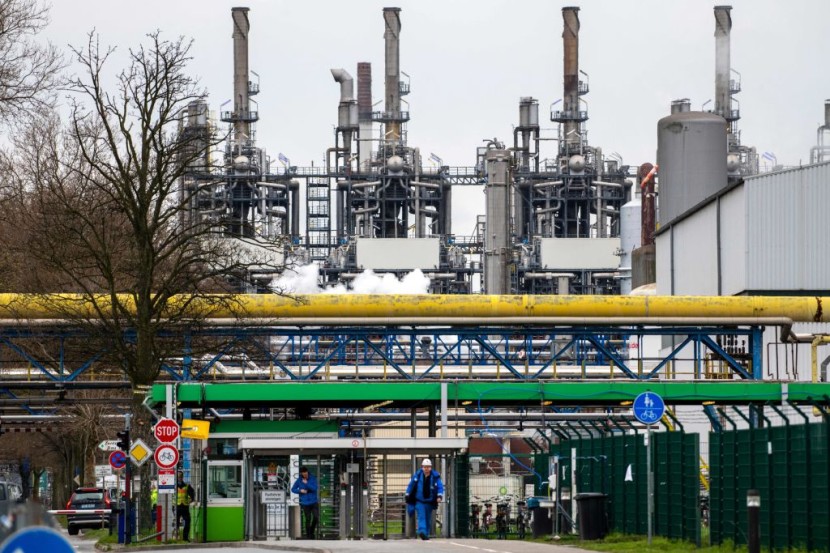
Germany's top forecasters warned on Wednesday that, if its supply of Russian natural gas was abruptly cut off, the country would enter a devastating recession.
According to an analysis by five German economic institutions, the country would lose 220 billion euros ($238 billion) in economic production over the next two years if such a shock occurred. In 2022, German GDP will grow by only 1.9 percent before contracting by 2.2 percent in 2023. If the gas keeps flowing, growth will be 2.7 percent this year.
Russian Energy Cut Would Put Europe Into a "Severe Recession"
Stefan Kooths, research director at the Kiel Institute for the World Economy and one of the report's authors, said that cutting Russian gas would send Europe's largest economy into a "severe recession."
For the first time since Russia invaded Ukraine, revelations of crimes perpetrated in Bucha when the suburb of Kyiv was under Russian control spurred the European Union to ratchet up economic penalties on Moscow and target Russia's huge energy exports.
All Russian coal imports will be phased out, according to EU leaders. According to CNN Business, coal will be prohibited by August. Some EU officials have advocated for action on Russian oil and gas exports, and a new sixth round of sanctions is already being discussed.
However, a ban on Russian gas in the near future would be disastrous for Germany, which depends on Russia for around 46% of its natural gas in 2020, according to the International Energy Agency.
The fuel is used to heat houses, create electricity, and power factories. The European Union is already attempting to reduce Russian gas imports by 66% this year, with the goal of being completely independent of Russian energy by 2027, The Financial Times reported.
According to Germany's leading economic institutions, a full EU energy embargo would cause a significant recession, with output falling by 2.2 percent next year and almost 400,000 jobs being lost. The latest prediction, announced on Wednesday, was more dismal than most previous economic analyses, providing cover for Chancellor Olaf Scholz's cabinet to oppose calls for an immediate embargo on Russian oil and gas imports, which Germany relies heavily on.
Last week, the EU agreed to an embargo on Russian coal imports beginning in August. Some EU member states have asked for the group to go even farther and restrict oil and gas imports, but Berlin has refused, claiming that such a step would be too costly economically.
An immediate Russian energy embargo, according to Marcel Fratzscher, chairman of the German Institute for Economic Research, would "have a considerably longer lasting impact and do more collateral damage to the economy than the pandemic, when workers were rehired rather fast."
Robert Habeck, Germany's minister of economy and climate change, took to Instagram late last month to urge Germans to save energy, stating that every cubic meter of gas saved increased the country's independence from Russia.
Read Also : Vladimir Putin Admits Peace Talks To End Russia-Ukraine War, Fires Back at US Involvement
Germany's Solution To Use Less Russian Energy
Some people, on the other hand, urge the government to adopt more tangible measures to encourage energy efficiency. For example, the German Federation of Sustainable Economy is advocating for a speed restriction on German highways that do not have one, such as the legendary autobahn.
Last week, Germany's ruling coalition published a legislative package aimed at hastening the country's transition to renewable energy over the next ten years. However, Berlin insists that "going cold turkey on fossil fuels from Russia would cause a major, rapid upheaval," as Germany's ambassador to the US, Emily Haber, tweeted on Wednesday. "You can't turn on and off contemporary industrial plants like a light switch."
She went on to say that Russian President Vladimir Putin's rationale for attacking Ukraine is "not the result of a classic cost-benefit analysis." She said that cutting off energy imports would have unclear consequences for Russia, but that the impact on the German economy would have global ramifications, as per The World via MSN.








